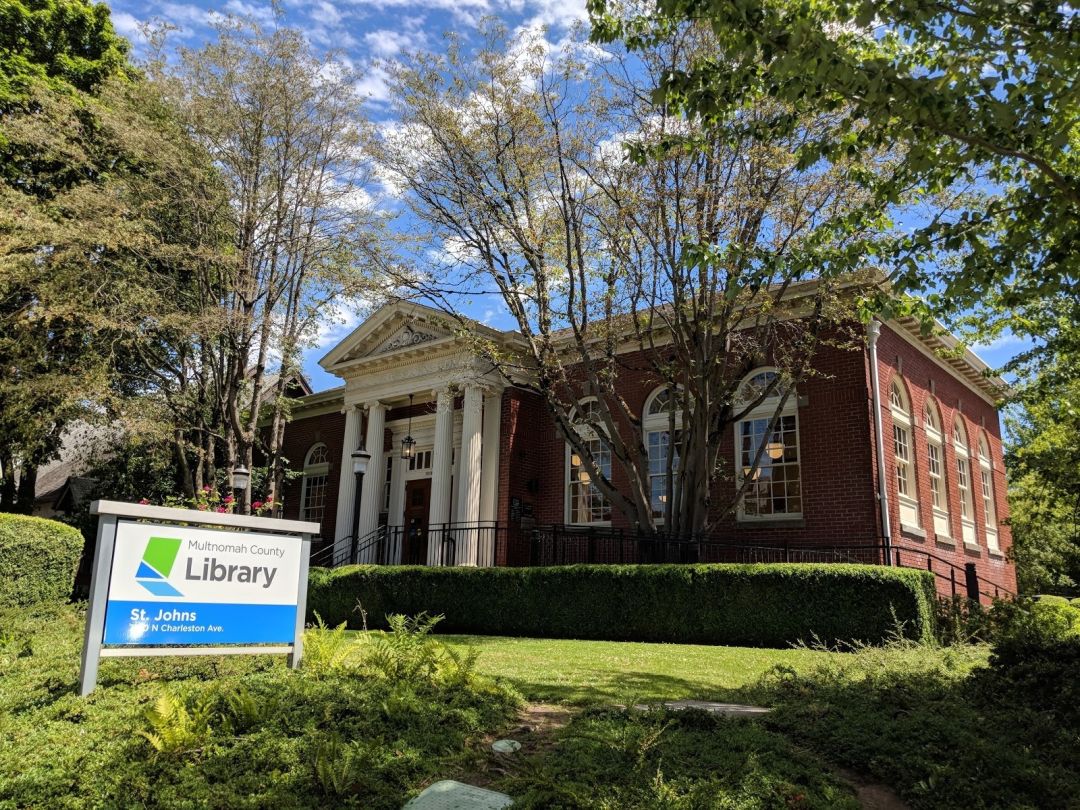Overdue Fines Are Canceled at the Multnomah County Library System

We’ve all been there, forgetting to return that library book on time and consequently having to pay up. But as of July 1, Multnomah County Library has permanently removed late fines on all library materials. Not only that—they’re clearing all existing fines on current accounts and restoring access to accounts blocked because of fines, erasing the debt of nearly 73,000 patron accounts, an amount that adds up to well over $700,000. Why now?
Though the intention of late fines was to goose people to return their books on time, a growing body of research has shown that they don’t always work, and that ending fines doesn’t increase the number of late returns, according to director of libraries Vailey Oehlke.
More important, even fines as low as 25 cents a day pose a financial burden on those who rely on library access the most, disproportionately affecting people of color and low-income communities. Limited access to transportation can also make it difficult to turn in books on time. In some cases, the inability to pay fines can turn people away from using the library in the first place.
Starting this week, Multnomah County Library joins a number of other libraries around the nation that have already eliminated fines, such those in Seattle and Washington, DC. “Everyone in our community benefits when people can access the materials they need to learn and grow,” says Oehlke, “and ending fines is one way the library is taking immediate action and creating a positive change for our community.”
Despite financial cutbacks due to COVID-19, the library is relatively insulated, since it’s funded by a dedicated property tax. The money brought in from late fines makes up only a small percentage of revenue, according toShawn Cunningham, the library’s director of communications and strategic initiatives. Patrons will still be asked to pay for items that aren’t returned within 49 days of the due date, but replacement charges are erased upon return. Print items will now be treated just like digital materials such as audiobooks and e-books, which don’t accrue late fines.
Multnomah County Library officials believe this decision also matters for the advancement of racial equity. With the recent wave of Black Lives Matter protests following the murder of George Floyd, the library has been promoting resources on antiracism and dismantling systemic oppression. As Cunningham put it, making educational resources free and accessible “is a concrete step we can take that helps people, right now.”
While libraries are protected by a property tax, other community spaces such as public pools, gyms, and recreation programs face a less promising future. Portland Parks & Recreation recently announced many of the current closures will continue beyond this summer, and not for public health reasons. Unlike the library and many other city services, PP&R is largely funded by user fees from things like summer camps, exercises classes, and swim lessons. The fee-based model, combined with city revenue shortfalls, could mean closures through summer 2021 and beyond—unless, however, the city council can refer a funding levy to the ballot and get voters to pass it this coming November.
Additional funds from the levy would go toward a more sustainable and equitable recreation system, without the cost barrier for community members—if passed, a page from the library’s book.




